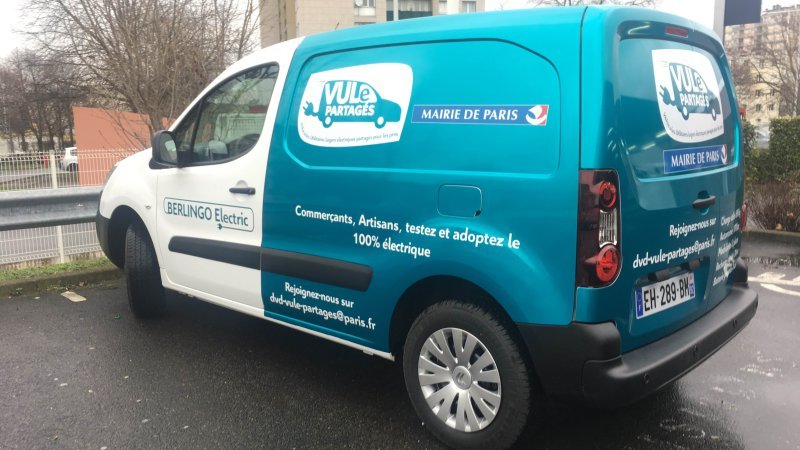PSA wants to electrify Parisian businesses with a shared fleet

One way to fight the pollution problem is to ban polluting vehicles from entering the city center. Cash-crunched small businesses might have trouble affording their own compliant work van, which adds logistical complexity to delivering goods and providing services in the affected areas. Thankfully, Paris has launched a new electric commercial vehicle sharing program called VULe Partagés, which could help people do business in the city while working to alleviate air quality concerns.
The pilot program, which lasts one year, provides a fleet of 10 electric vans at five charging stations in two of Paris' central districts – the Bourse and Temple arrondissements – to traders and craftspeople on demand. PSA Group is providing eight of the EVs, with four Peugeot Partner and four Citroën Berlingo vans. The other two are Renault Kangoo ZEs. According to Le Parisien, a number of people, from restaurateurs to caterers to florists, are already using the service.
Each van comes with a card that provides free access to the Rungis International Market on the outskirts of Paris. This enormous wholesale food market is the starting point for many of the deliveries to Parisian cafés and restaurants. The inclusion of a Rungis card is a good indication of how the VULe Partagés vehicles will be used. In a city where food helps to define its culture, cutting emissions in the supply chain is an important step both symbolically and practically (and, to that end, Rungis began providing Renault Zoe EVs on its campus in 2014). The single refrigerated EV in the VULe Partagés fleet is likely to be in high demand.
After the one-year trial, the success of the program will determine its fate, which could include expanding to other parts of Paris. Until then, businesses will be driving greener (perhaps saving money on vehicle costs in the process), and operators will be gathering valuable data that could aid future sharing endeavors.
Nouvelles connexes


